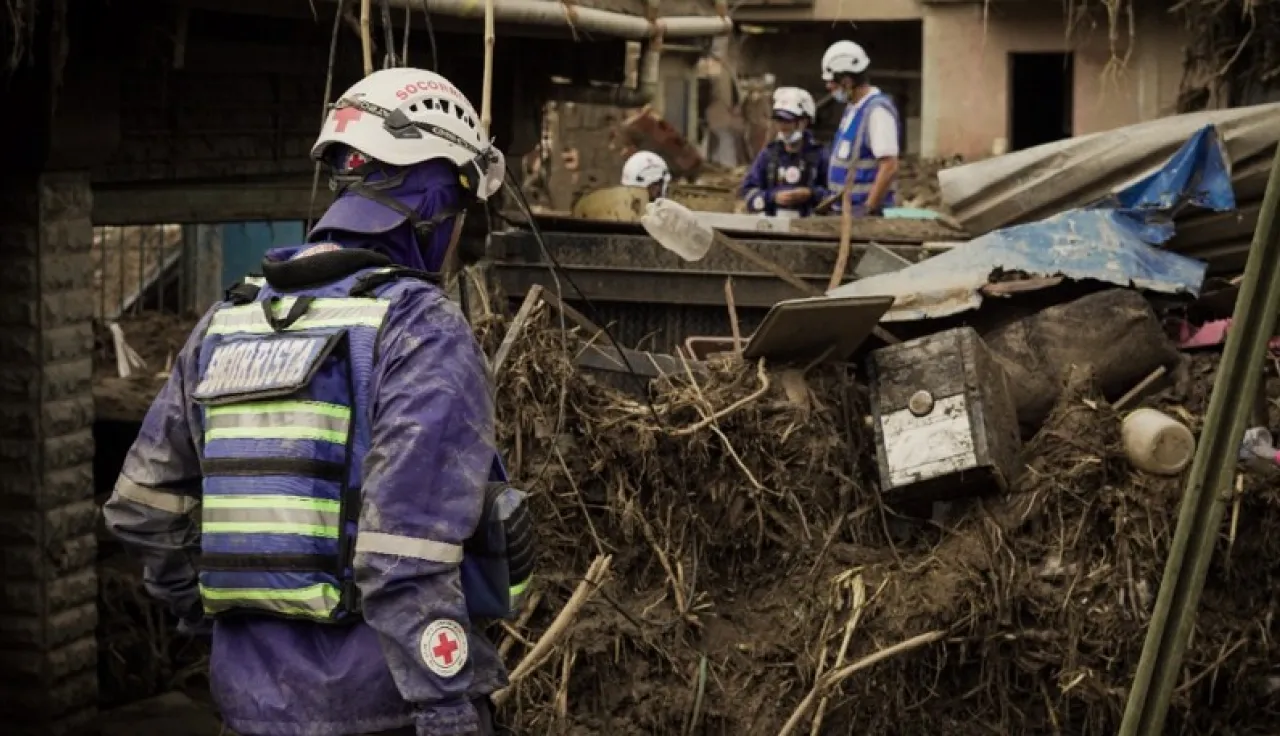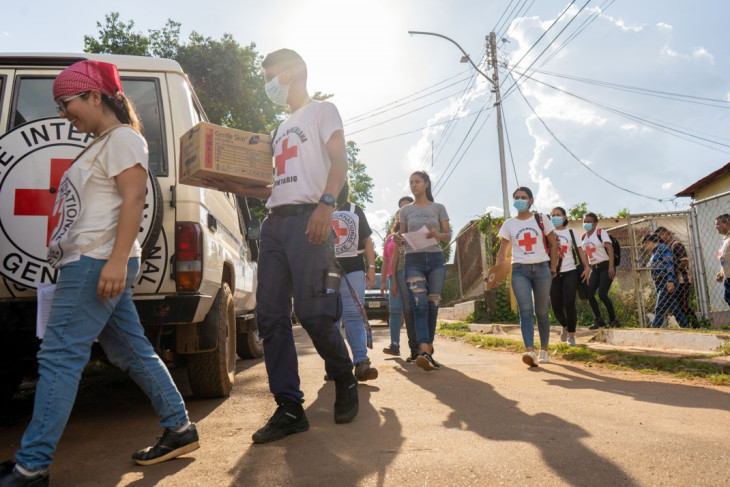Venezuela: International Volunteer Day, the heart of the Movement

During International Volunteer Week, we want to recognize all the volunteers of the Venezuelan Red Cross for their admirable hard work, dedication and commitment. Through this brief story of Fernando, a volunteer in the state of Aragua, we would like to thank them for every minute they have spent helping those most in need. Together with all of you, #LetsKeepMoving.
Being a Red Cross volunteer means getting to experience things from a different perspective. "The passion we volunteers have for helping others can be hard to explain – you just feel it," says Fernando, 22, who has already had what he calls "life experiences" as a volunteer for the Venezuelan Red Cross. When he puts on his first-aider uniform, he is transformed: "You go out to help people knowing you're going to give it your all," he says. Volunteers have to be brave, as they can face very challenging and sometimes unfamiliar situations.

Fernando (on left, gesturing) works with staff from the civil protection service, Corposalud, El GARC and other services to transfer a patient on a stretcher.
"My first experience with the Venezuelan Red Cross was in 2019, when I took a course to become a first-aider. I went partly because my mother pushed me to do it and partly because I had this unconscious need to help people. Honestly, I never thought I'd last so long as a volunteer and have so many emotional moments as part of the Movement, but you can't always predict these things. You just keep trying things to see what makes you happy, and I felt good when I arrived at the Red Cross – like I'd found my place," says Fernando.
First-aiders with the Venezuelan Red Cross know they play a crucial role in mounting a quick, efficient and humanitarian response to natural disasters, accidents and fires. For around eight months, they receive training in patient transport and evaluation, strict physical exercise, abseiling, first aid, water rescue and pre-hospital care, among other skills. However, Fernando feels that all volunteers – from first-aiders to people providing psychosocial support or helping with health awareness days – are alike in that they share the same passion, as well as a certain quality that can't be described in words, but can be seen in the eyes of every volunteer and every hand reaching out to help.

Right in the middle of the front row is Fernando. Around him, other volunteers of the Venezuelan Red Cross in Aragua.
Fernando is from Maracay, Aragua State, and that background, combined with his involvement in the largest humanitarian network in the world – the International Red Cross and Red Crescent Movement – has given him a front-row seat to historic but terrible events in Venezuela, such as the severe floods in El Limón in 2020 and the recent landslide in Las Tejerías in October 2022. Fernando says those moments run through his mind every day, and that it is only thanks to the mental-health tools provided by the Venezuelan Red Cross, the support of his fellow volunteers and the satisfaction of having helped so many people that he can keep moving forward and not lose heart.
"As a volunteer, you see things you wouldn't otherwise be aware of. You realize that your problems are minor compared to what other people are going through. As a result, you grow up, become more mature. When you come face to face with such sadness, people in very unstable situations, death ... it changes you, makes you more human. Being here equips you to serve others."

For volunteers, working in a team comes naturally: they have their own codes and know their individual and group abilities very well. "We trust one another. I put my life in the hands of my fellow volunteers," says Fernando, who has often found other volunteers to provide a listening ear, empathy and good advice.
Cooperation with National Societies is one of the pillars of the ICRC's work. In Venezuela, we work with the Venezuelan Red Cross, the authorities and especially volunteers to provide communities with a safe humanitarian response. For example, the knowledge of Red Cross volunteers has been very useful in helping people in communities affected by armed violence in the states of Bolívar, Táchira, Apure, Zulia, Falcón Miranda and the Capital District to develop skills and practices in community gardening and to learn about physical and psychological first aid.
We also work with the Venezuelan Red Cross to ensure that it can respond quickly and safely in other emergencies. We do this by strengthening its knowledge and application of the Safer Access Framework, services such as Restoring Family Links, and water and pre-hospital care programmes. Between January and November of this year, the ICRC has helped train or refresh around 550 volunteers on Safer Access and the Movement's Fundamental Principles through awareness-raising and training sessions, workshops, peer exchanges, etc., thus promoting the well-being and safety of all Venezuelan Red Cross volunteers.

